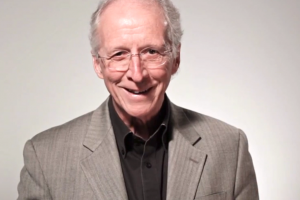In a recent DesiringGod.org "Ask Pastor John" episode, John Piper responded to comments that were allegedly made about his beliefs at John MacArthur's Strange Fire Conference. MacArthur, who is a cessationist, allegedly claimed that continuationalist Piper may not be strongly convinced about his views on the gifts of the Holy Spirit.
Biblical commentator John MacArthur is one of "very few people" whom John Piper listens to. "His attention to the text and his love of the Bible and his ability to apply it in forceful and relevant ways is incredibly helpful to me," says Piper. The two theologians differ on their beliefs about the gifts of the Holy Spirit, and according to Tony Reinke at DesiringGod.org, MacArthur was "Critical of all things continuationalist" at his recent Strange Fire Conference.
MacArthur allegedly said that while Piper did believe that gifts such as prophecy and speaking in tongues are ongoing today, this was an "anomaly" to his overall theology. The renowned Biblical commentator argued that since Piper does not usually spend much time preaching on the gifts of the Holy Spirit, he does not seem "exegetically convinced enough to advocate others pursue prophecy and tongues for themselves."
Piper clarifies that while his effort to prioritize topics for preaching may be imperfect, he does try to advocate for others pursuing the gifts of the Holy Spirit as it relates to a topic that he is preaching on. He cited texts like 1 Corinthians 14:1,39 which say, "Pursue love, and earnestly desire the spiritual gifts, especially that you may prophesy" and "... earnestly desire to prophesy, and do not forbid speaking in tongues" (English Standard Version).
Piper says that he tries to obey these texts every time he preaches - "I pray for the gift of prophecy almost as often as I pray for anything before I stand up to speak," he says. Piper asks God to anoint him with the gift to be able to say things that he had not necessarily prepared for beforehand which are in line with Scripture and would pierce the hearts of those who need to hear them, as seen in 1 Corinthians 14:24-25:
"But if all prophesy, and an unbeliever or outsider enters, he is convicted by all, he is called to account by all, the secrets of his heart are disclosed, and so, falling on his face, he will worship God and declare that God is really among you."
While Piper acknowledges that MacArthur doesn't think that this is what the gift of prophecy means, he says he has Biblically valid reasons to believe that this is the proper definition of prophecy. MacArthur's view is that prophetic words are infallible and have Biblical authority. Piper's view of prophecy is "something that God spontaneously brings to mind in the moment - and because we are fallible in the way we perceive it, in the way we think about it, in the way we speak it, it does not carry that same level of infallible Scripture-level authority."
His reasons for viewing the gift of prophecy in this light are based on texts like 1 Thessalonians 5:20-21, which says, "Do not despise prophecies, but test everything; hold fast what is good." You would have no need to test a word of prophecy if the message delivered was thought to be infallible, he says. In essence, Piper believes that Paul is trying to keep the early church from throwing the "baby" of true prophecies out with the "bath water" of false ones. Piper also points out that 1 Corinthians 11:4-5 mentions women prophesying within the church - an act that the Apostle Paul would have forbidden for them to do if it meant exercising authority over men (see 1 Tim 2:12). Piper believes that prophecy is therefore a means of encouragement and edification of the body, and should not be taken as infallible words of authority.
Finally, Piper says that the "perfect" mentioned in 1 Corinthians 13:9-10 ("For we know in part and we prophesy in part, but when the perfect comes, the partial will pass away") is referring to the return of Jesus Christ, which has not yet come. Therefore, he argues that the gifts of the Holy Spirit will continue until the second coming of Christ.
Piper's response was earnest and kindhearted - "The last thing that I want to do is in any way diminish or obstruct John MacArthur's incredibly fruitful expository ministry," says Piper - "I love John, I love [his] ministry."




















